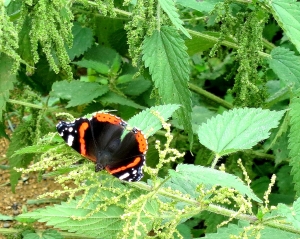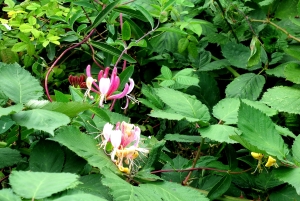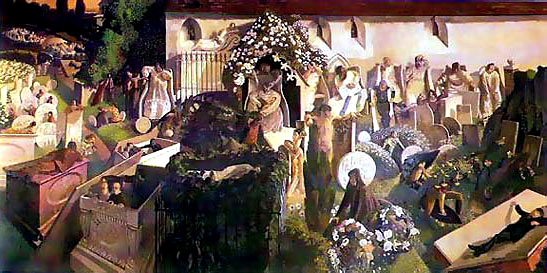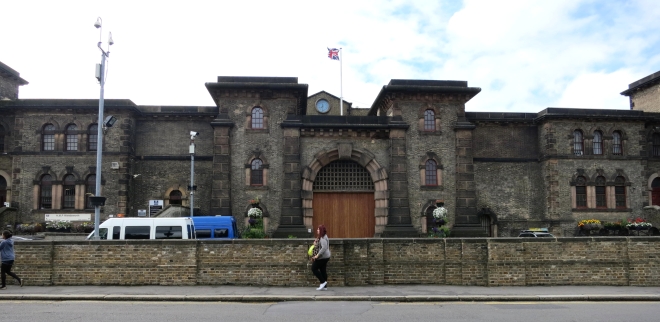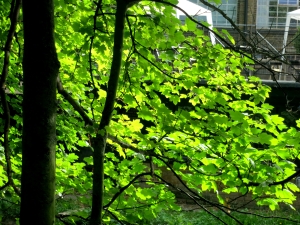On the soggiest section of the Wandle Trail during my usual walk to Colliers Wood for a visit to Norman, Oscar came lolloping towards me, lascivious tongue flopping, and muddy paws flailing. At the very last minute this playful young alsation veered off right, having responded to his owner’s sharp command. The man informed me that ‘he was only saying hello to’ me. ‘It’s only his paws I was worried about’, I replied. The bottoms of my Austin Reed fine woollen trousers were already besmirched enough. Maybe the saliva and no doubt wet nose wouldn’t have been too pleasant either.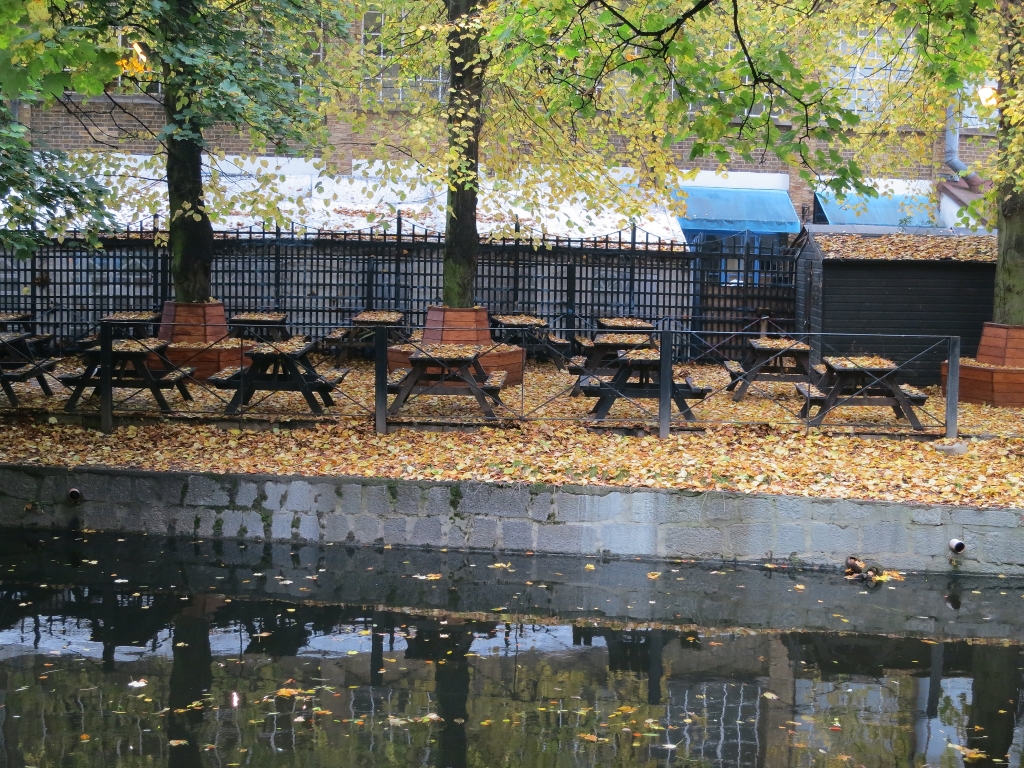
A multitude of autumn leaves provided covering for picnic tables across the Wandle in Abbey Mills, whilst a single one.quivering in a spider’s web was about to disappoint its resident hungrily catapulting towards what it thought was juicy prey.
As I boarded the Jubilee Line at Green Park, there was only one available seat, although several people were standing. A very strange-looking man, who I had noticed through the carriage windows from the platform, sat opposite me. I soon realised why this vacancy existed. He wished to engage me in conversation about my book, and kept chuckling to himself, presumably amused by the inoffensive young woman next to me, at whom he gesticulated with regularity. Fortunately he disembarked at Swiss Cottage. This reminded me of one of my commuting journeys from Kings Cross to Newark. I was sharing one of the four-seater arrangements with a young man and an elderly woman who insisted on conversing with our fellow-passenger. At the top of her voice she really bent his ear. Other occupants of the carriage gradually moved further and further back and into the next compartment until we three were in sole possession. Eventually I rose and settled myself at the far end, leaving the very patient young man to his fate.
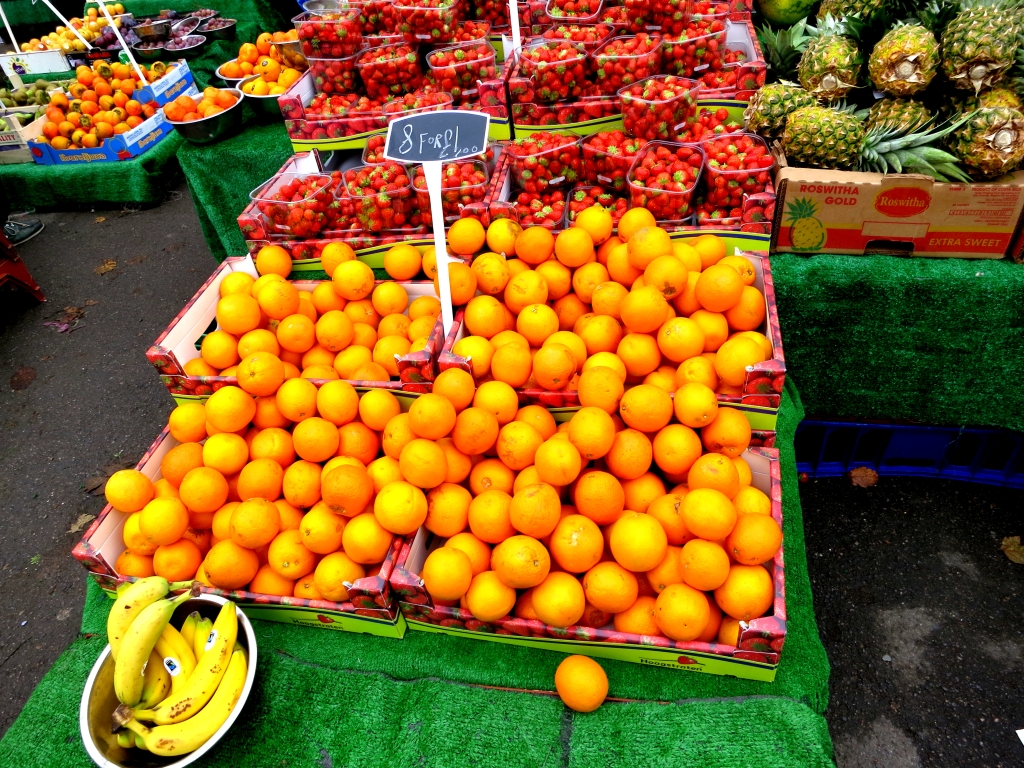 The vibrancy of Church Road market transcended the dullness of this day.
The vibrancy of Church Road market transcended the dullness of this day.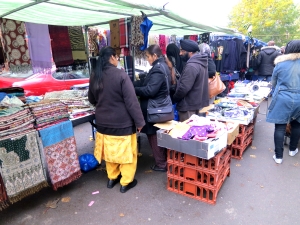 When photographing these delights I was prevailed upon to convince some people that I was not ‘an Inspector’.
When photographing these delights I was prevailed upon to convince some people that I was not ‘an Inspector’. 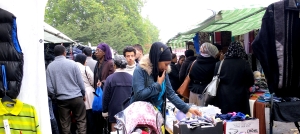
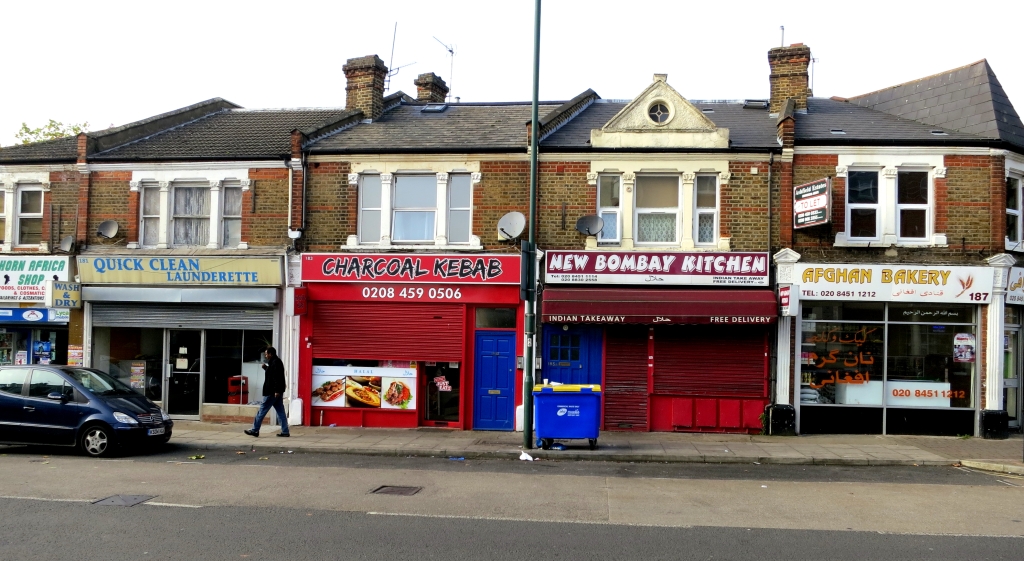 The facades of shops in the street itself bear witness to the constantly metamorphosing multicultural nature of this lively area of North West London. I am sure if I were to walk along here in a year or two there would be different nationalities represented. Already the wonderful West Indian takeaway food shop of comparatively recent years has disappeared
The facades of shops in the street itself bear witness to the constantly metamorphosing multicultural nature of this lively area of North West London. I am sure if I were to walk along here in a year or two there would be different nationalities represented. Already the wonderful West Indian takeaway food shop of comparatively recent years has disappeared
Norman served up a roast pork dinner with blackberry and apple pie. He admitted that his hand had slipped when lacing the custard. My half of the Mondelli 2009 chianti would have been sufficient without the brandy.






